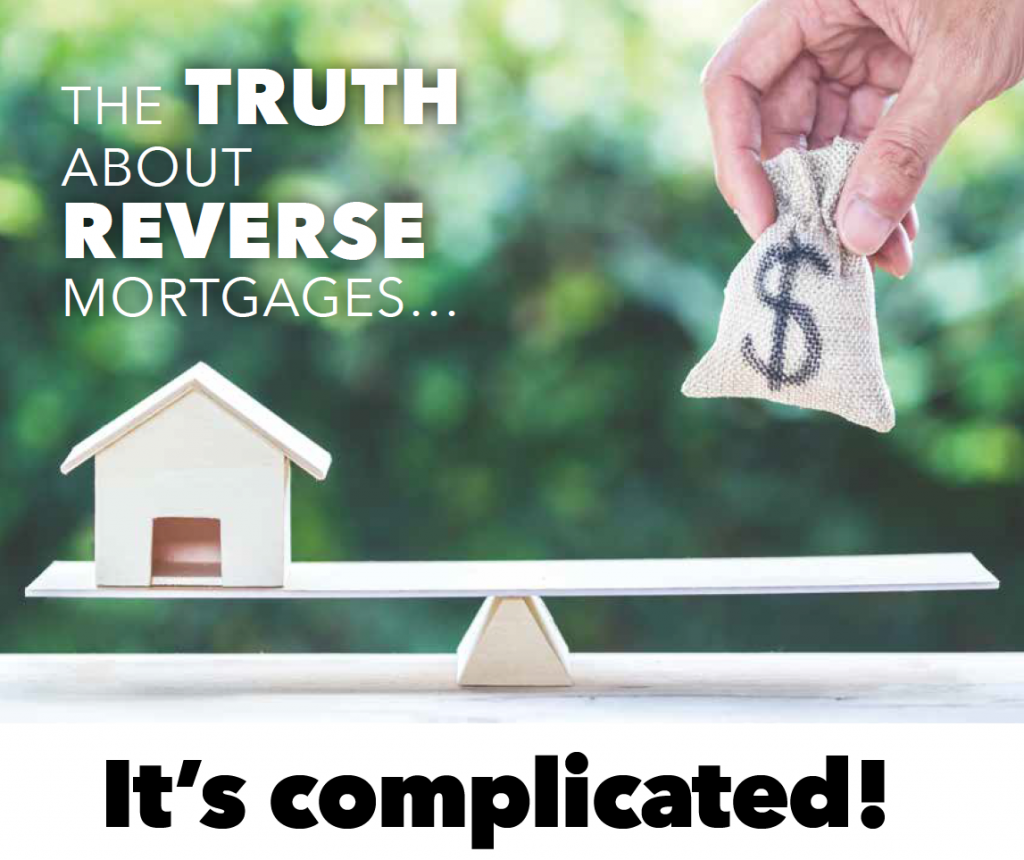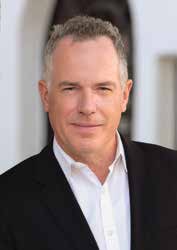
Simply put, reverse mortgages enable seniors (62+) to take equity out of their homes for a variety of living expenses including—but not limited to—medical bills, paying home care providers, home maintenance, remodeling projects, or just to supplement retirement income. In their most basic form, reverse mortgages are the housing equivalent of the old RV bumper sticker: “We’re spending our kids’ inheritance!”
So, why are reverse mortgages so controversial and why do their ads always feature celebrity spokespeople—such as Tom Selleck, Henry Winkler, Pat Boone, and Robert Wagner—determined to convince you that you can trust them?
The answer is one part history and one part the fact that reverse mortgages are not for everyone. Although reverse mortgages have evolved into an ideal tool for a select group of high-equity homeowners, before Congress passed the Reverse Mortgage Stabilization Act in August 2013, reverse mortgages were plagued by many of the same abuses that led to the 2008 mortgage crisis that inspired the mega hit 2015 film “The Big Short.” Lending without financial underwriting guidelines, overlending, occasional false advertising, and borrowers pressured into loans they did not fully understand were commonplace, just as they were for the highly speculative “little or nothing down,” “no doc,” interest-only mortgages that plagued the mortgage-lending industry 15 to 20 years ago. All of these problems were thoroughly documented by the Government Accountability Office (GAO) in 2009 and again by both the Federal Trade Commission (FTC) and Consumer Financial Protection Bureau in 2012.
But that was then, and this is now.
So, now that the industry has been cleaned up, who should consider getting a reverse mortgage and who should cross
them off their list?
All of which brings us to “it’s complicated!”
According to Janice Cohen, top-producing local representative of Mutual of Omaha Mortgage (one of the nation’s largest reverse-mortgage companies), “Reverse mortgages are highly customizable. We have multiple programs to offer depending on the age of the youngest borrower, existing financing, property value, and the amount of money taken out by the borrower at funding. Most people don’t know that there are lump-sum, line-of-credit, and annuitized monthly income options.”
First and foremost, the ideal candidates for a reverse mortgage are:
1) Homeowners with substantial equity that are either struggling to make ends meet or who want to enhance/supplement their retirement income.
2) Seniors without long-term care insurance that suddenly find themselves in need of at-home care providers.
3) Divorcing senior couples where one spouse wants to buy the other out but lacks the income needed to qualify for a conventional loan.
4) Seniors trading from a two-story to a one-story house that want to use the move as an opportunity to restructure their finances.
5) Someone who purchased their home for $30K in 1970 that is now worth millions, seeking to avoid the long-term capital gains they would have to pay if they sold.
6) “House-rich” fixed-income homeowners that are on track to clearly “outlive their savings.”
Which brings us to who should not consider a reverse mortgage. The list provided by Victor Benoun, president
of the The Mortgage Source, includes:
1) Multigenerational households. When the family member on the loan dies or is forced to move to a senior care facility, the loan must be paid off, and in most cases, that means the home must be sold and everyone has to move out.
2) Borrowers that need to maximize loan proceeds. Reverse mortgages typically top out a 60% loan to value versus 80%-plus for conventional loans.
3) Borrowers who intend to leave the home to their heirs.
4) Currently working homeowners that earn enough to cover all of their bills.
5) Homeowners with short time horizons. If you know you want to move to the Sunny Hills Retirement Community in two years, a reverse mortgage is not for you. Reverse mortgages are fee intensive on the front end, so it does not make sense to pay those fees for a loan that is going to be paid off in less than five to 10 years.
6) Owners with estate plans dependent on the “basis reset” upon death.
7) Anyone that lacks the financial resources to maintain the property while paying both the property taxes and insurance.
While I first started looking into reverse mortgages out of personal curiosity, the more I learned, the more I realized that there are a few constants that dominate the understanding of the topic. These are: The older you are, the larger the loan to value you will qualify for. The age of the youngest person on title determines the loan size. Lenders give the lowest rates for the variable rate loans. The repayment flexibility of reverse mortgages comes at a price. Yes, you can draw additional funds via no/low cost refinancing as your equity increases. Yes, you can pay absolutely nothing monthly if you choose. Yes, you can repay the loan in part or in full at any time. And yes, the upfront Originations Fees, Mortgage Insurance Premium (2% of appraised value at closing plus .5% of the loan balance charged annually), and interest rates are higher than conventional loans.
So, what are the primary attractions of reverse mortgages? First, retired homeowners that currently do not qualify for a conventional loan may qualify for a reverse mortgage. And second, seniors who qualify now for a loan that are concerned that they may not qualify later when they really need access to their home equity can secure a lifelong credit facility secured by their home equity. For those that find it a good fit, reverse mortgages provide the ultimate in flexibility…at a price.

For mortgage questions, contact your mortgage broker. For trust, inheritance, and succession questions, contact your estate attorney. For questions about this article, property management, or fractional estate management, contact the author at D.Huberman@LexingtonPMC.com. Doug Huberman is a former professor of economics, Air Force Top Gun, and co-owner of Lexington Property Management.



